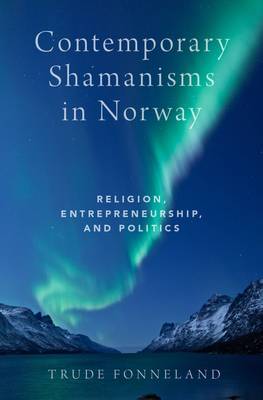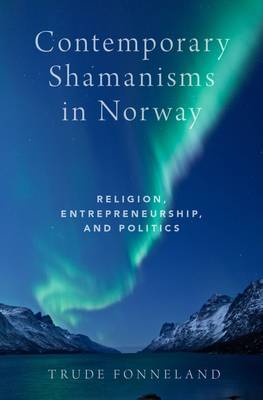
En raison d'une grêve chez bpost, votre commande pourrait être retardée. Vous avez besoin d’un livre rapidement ? Nos magasins vous accueillent à bras ouverts !
- Retrait gratuit dans votre magasin Club
- 7.000.000 titres dans notre catalogue
- Payer en toute sécurité
- Toujours un magasin près de chez vous
En raison de la grêve chez bpost, votre commande pourrait être retardée. Vous avez besoin d’un livre rapidement ? Nos magasins vous accueillent à bras ouverts !
- Retrait gratuit dans votre magasin Club
- 7.000.0000 titres dans notre catalogue
- Payer en toute sécurité
- Toujours un magasin près de chez vous
Contemporary Shamanisms in Norway
Religion, Entrepreneurship, and Politics
Trude Fonneland
Livre relié | Anglais
265,95 €
+ 531 points
Description
One of the fastest growing religious movements in the Western world, neo-shamanism embraces notions and techniques borrowed from various tribal peoples and adapted to the life of contemporary urban dwellers. Until the twenty-first century, the neo-shamanism found in northern Europe differed little from neo-shamanism elsewhere in the Western world. In the new millennium, a S�mi and Nordic version of neo-shamanism came into being, along with a new focus on the uniqueness of the arctic north, expressed through New Age courses and events. The Norwegian New Age scene is increasingly overrun with S�mi and Nordic shamans, symbols, and traditions. Contemporary Shamanisms in Norway examines the construction of this S�mi neo-shamanistic movement and argues that it fits into the broader ethno-political search for a Sami identity. Drawing on ten years of ethnographic research, Trude Fonneland highlights the values important to neo-shamans' self-development and their marketing of shamanistic products and services. She explores S�ami and Nordic neo-shamans' promotion of Arctic nature, their negotiations of gender in neo-shamanism, and their ritual inventions. Focusing on contemporary shamanism in Norway and Nordic contexts, Fonneland argues that the spiritual quest in Nordic countries has developed surprising and innovative forms of spirituality that call for a reevaluation of the relationship between religion and the secular world.
Spécifications
Parties prenantes
- Auteur(s) :
- Editeur:
Contenu
- Nombre de pages :
- 246
- Langue:
- Anglais
Caractéristiques
- EAN:
- 9780190678821
- Date de parution :
- 01-09-17
- Format:
- Livre relié
- Format numérique:
- Genaaid
- Dimensions :
- 155 mm x 236 mm
- Poids :
- 476 g

Les avis
Nous publions uniquement les avis qui respectent les conditions requises. Consultez nos conditions pour les avis.






